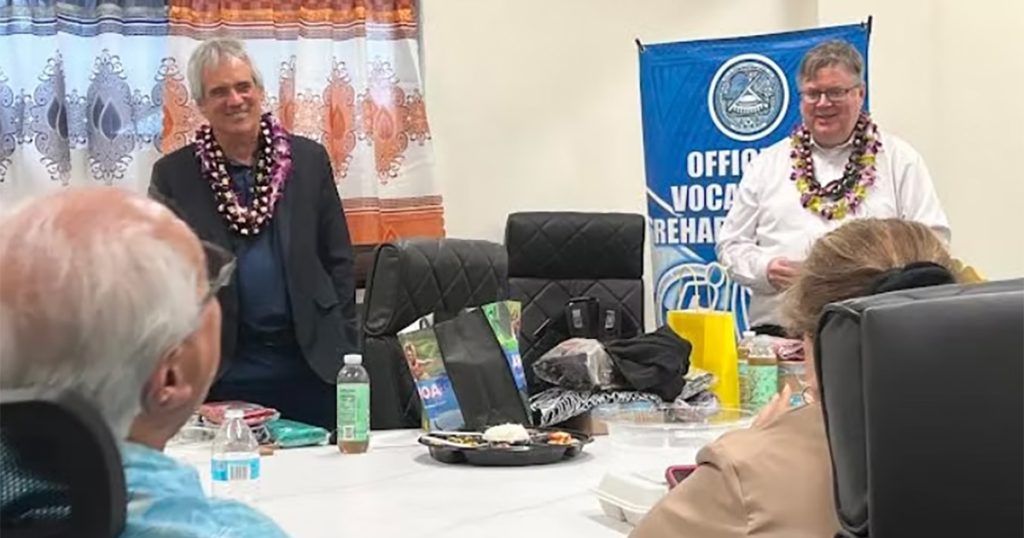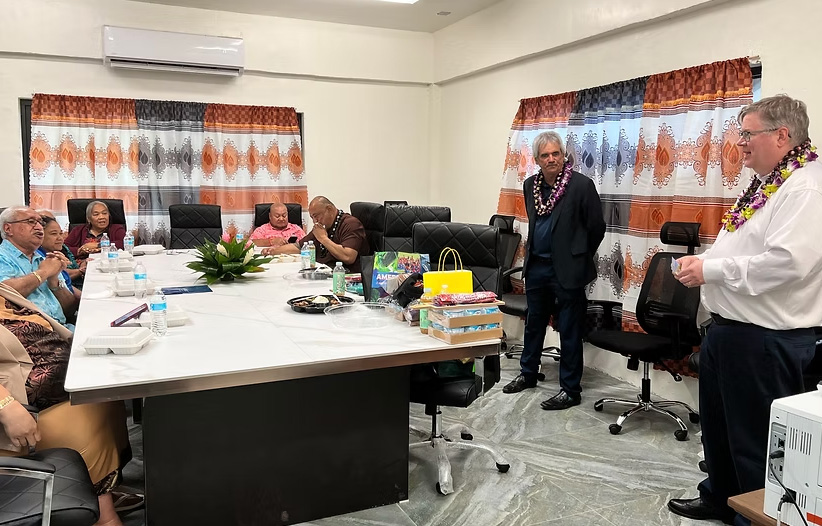By Laurel White
A School of Education faculty member recently partnered with the government of American Samoa to improve how the territory provides job training for individuals with disabilities.
The intensive, on-site training for counselors in the territory’s Office of Vocational Rehabilitation was part of the ongoing work of the Vocational Rehabilitation Technical Assistance Center for Quality Employment (VRTAC-QE), an initiative sponsored by the U.S. Department of Education and led by Tim Tansey, a professor in the Department of Rehabilitation Psychology and Special Education.

Tansey says the training was the culmination of more than a year of virtual training sessions and technical assistance provided by VRTAC-QE experts on how to place individuals with disabilities in competitive jobs with an eye on long-term career development.
“You could see them making the connections to the remote training as we worked together,” Tansey says. “It crystallized everything we had been working on up to that point.”
In addition to practical skills training for counselors, the workshop included sessions for other government agencies and businesses across American Samoa on how to partner with the territory’s Office of Vocational Rehabilitation. Michael Frain, a professor at Florida Atlantic University, also provided training on self-employment services.
Herman Fa’ataualofa, deputy director of the Office of Vocational Rehabilitation, says the training provided a much-needed boost to the island’s work with individuals with disabilities who are seeking employment.

“It was an eye-opening experience for everybody — not just the clients and counselors, but everyone in the office,” Fa’ataualofa says. “Counselors were getting training in the short term and partners were getting information that was important. Businesses were able to see the benefits of hiring people with disabilities and what we’re able to do.”
Fa’ataualofa noted many counselors had never received in-person training on vocational rehabilitation before the visit by Tansey and his team.
“The counselors expressed appreciation for this accelerated and intensive training opportunity given that all of them have not had the opportunity to receive formalized training specific to the very essence of their duties and responsibilities – finding and placing individuals with disabilities in competitive employment,” the government of American Samoa said in a press release about the training.
Tansey and experts from VRTAC-QE have previously visited 22 states and the Northern Mariana Islands to support capacity building of their vocational rehabilitation agencies.
Broadly, Tansey’s research focuses on evidence-based practices in vocational rehabilitation, applying novel technology in service provision and rehabilitation counselor education, self-regulation, and self-determination. Last year, Tansey and a team of colleagues received $17 million in federal funding over five years to expand job training and career support programs for individuals with disabilities.